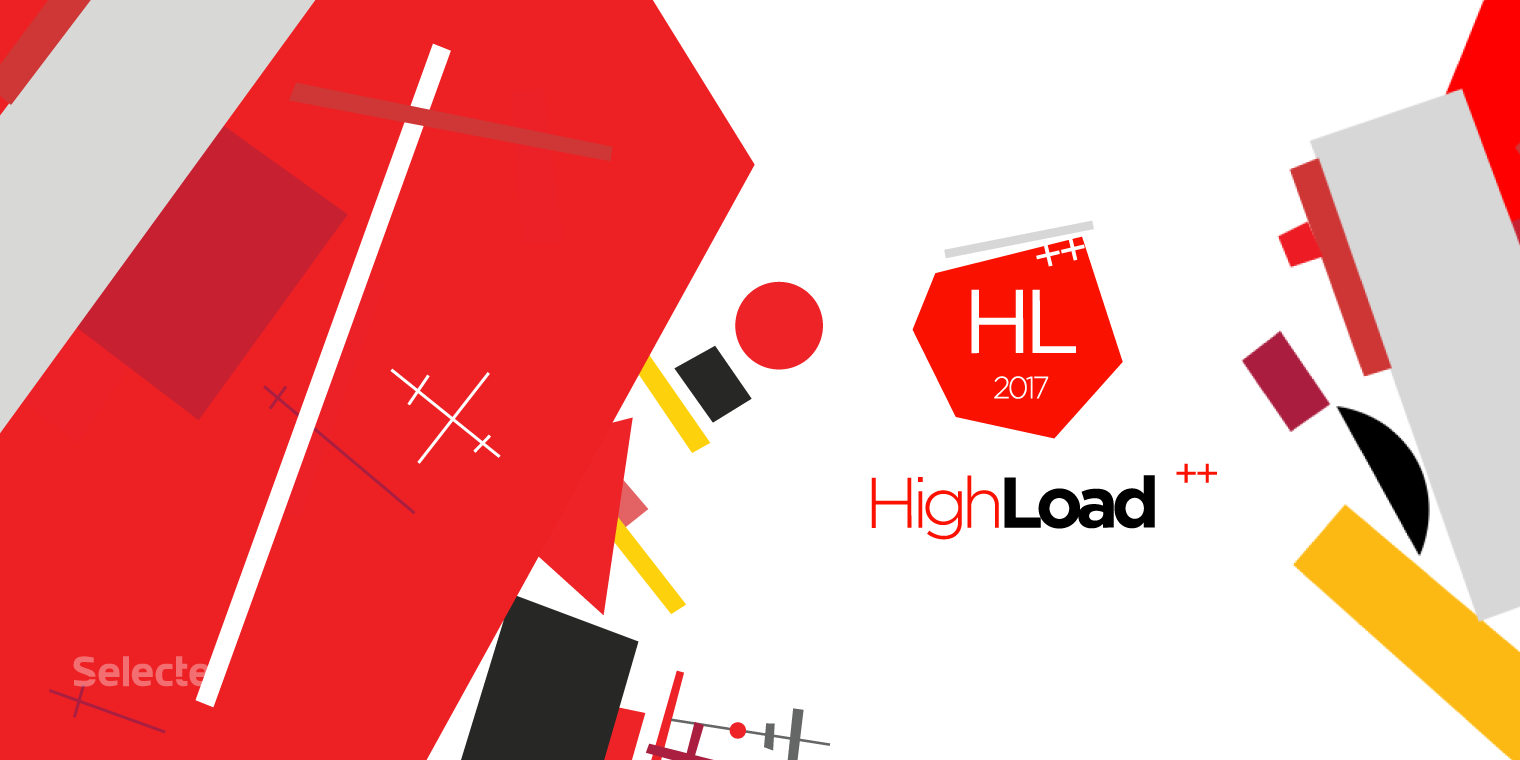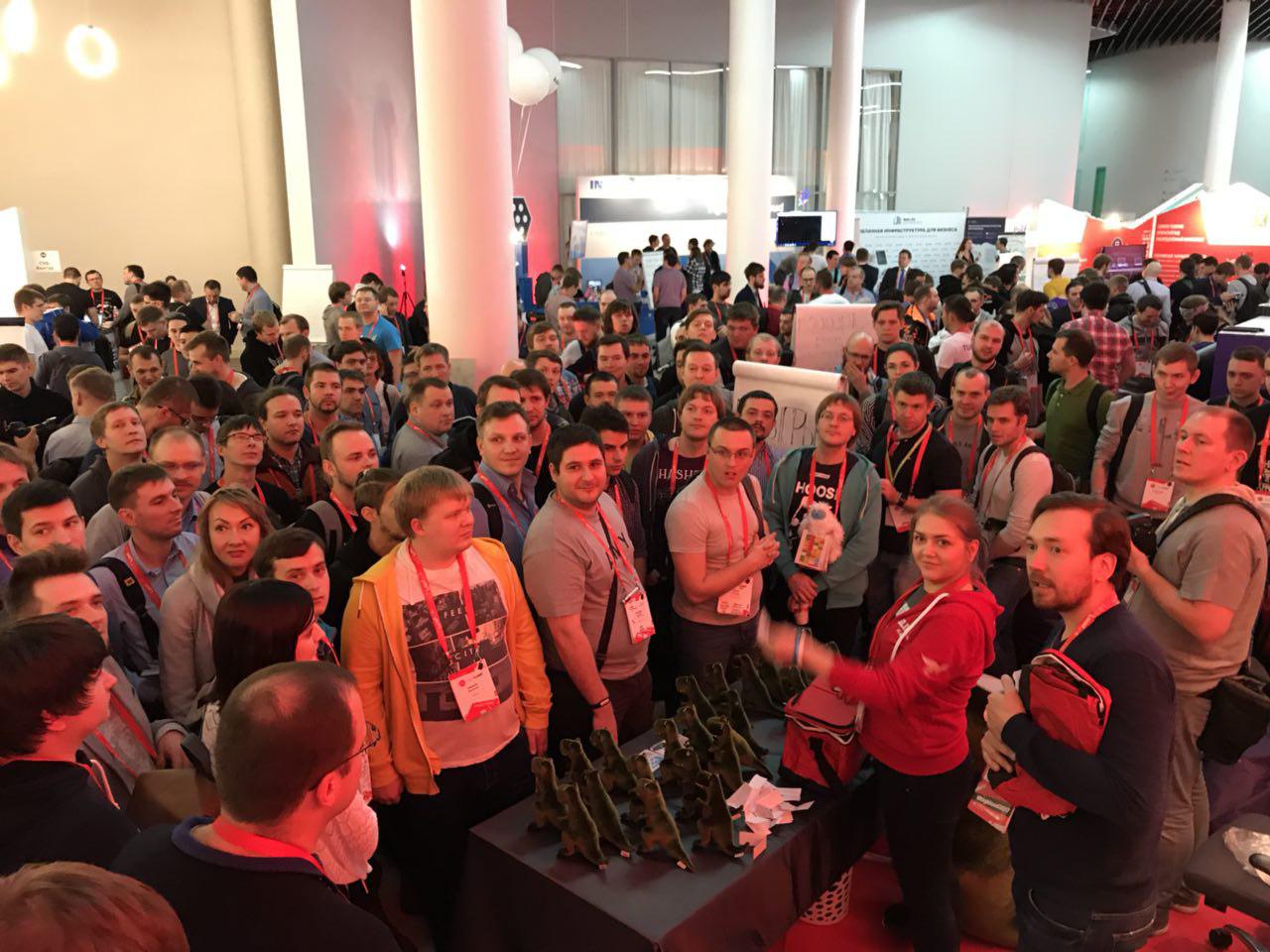HighLoad 2017: “You Just Can’t Miss It”
 The 11th annual HighLoad++ conference was held from November 7-8 at the Skolkovo Innovation Center. This year, the conference saw 2 700 people in attendance—200 more than last year! Today we’ll be reporting on the highlights and presentations that our team from Selectel saw.
The 11th annual HighLoad++ conference was held from November 7-8 at the Skolkovo Innovation Center. This year, the conference saw 2 700 people in attendance—200 more than last year! Today we’ll be reporting on the highlights and presentations that our team from Selectel saw.
The aim of the conference is to give developers of highload systems a platform where they can share their experience and knowledge with one another. The 2017 program included presentations on the architecture of major projects, databases, and storage systems; system administration; load testing; running massive projects; and other topics related to highload systems. Nine hours of presentations from the main hall are available on YouTube from both days (Day 1, Day 2) of the conference.

Selectel Technical Director Kirill Malevanov noted that, compared to last year, there was very little buzz about programming languages. Many presenters formulated their talks like a retrospective: “How did we do this? What did we do? Why?” There were a fair number of presentations on containers and their orchestration systems; the nuances of configuring Cgroups, Kubernetes, and Prometheus; and best practices for their application in setting up CI/CD processes.
Another popular topic was databases: PortgreSQL, MySQL (MariaDB, Percona), and ClickHouse. These included overviews of innovations, tuning, and different tips for configuring and monitoring them. There was less talk about blockchains.
Andrei Ozerov, system administrator in the Selectel Openstack department, talked about the most popular presentations of HighLoad++ 2017. The presentation that most stood out was given by Ian Eyberg from DeferPanic. His presentation was dedicated to unikernels, a fairly undeveloped and not widely-used technology.
The main idea of the presentation was that today’s operating systems are modular and contain a multitude of components: drivers, applications with different dependencies, and libraries. If launched in a cloud environment or inside containers, some of these are rarely used.
A unikernel-based system contains one specific application and a minimum set of dependencies for its launch. This approach dramatically decreases the number of vulnerabilities in the OS. In concluding, Ian said that the developers of the unikernel project still have a lot of difficulties ahead of them: for example, there still isn’t a single standard for building these kinds of systems.

The application of DevOps was widely discussed; for example, Alfa Bank talked about how they came to use this approach and how they managed to dramatically accelerate the deployment of releases and automate testing.
Another interesting presentation was given by New Relic, which mentioned Selectel as a company you can order servers from, and linked one of our blog posts — Guest Post: Managing the VPC with Terraform. New Relic uses Terraform to launch infrastructures where they can in turn launch their own components in CoreOS containers. The company wrote its own Terraform add-on for ordering bare metal servers via API. This can all be launched automatically inside of Jenkins when necessary.
“A well-organized, high-quality conference; judging by the number and quality of presentations, there’s nothing like it,” noted Selectel Cloud Technology Lead Specialist Aleksei Bogdanov. “You just can’t miss it, otherwise it’s like you wasted the year. I managed to get feedback on our work from top clients face-to-face, which I feel is invaluable in the age of digital communication.”
“Overall I was impressed,” said Kirill Malevanov. “I saw our service users live. I sat in on a presentation; the guy on the right with the laptop first accessed a server with an IP address from our range, and then the my.selectel.ru panel, and then the VPC control panel.”
A lot of participants mentioned the CS:GO tournament, which “went well”. The final was held in Congress Hall—the biggest hall at the conference. The winner, naturally, was one of our delegates: B2C Product Manager Daniil Pivovarov.
The Selectel stand was packed. There were various contests: we gave pins out for people who posted photos with T-Rex on social networks, and attendees who solved an IT crossword puzzle got stickers of our mascots. Participants later got the chance to win plush T-Rex figures or a Selectel bag. We were asked so often if we would give away a big dinosaur (alas, as there was only one, this wasn’t in the cards) that we decided to definitely do it next year.
